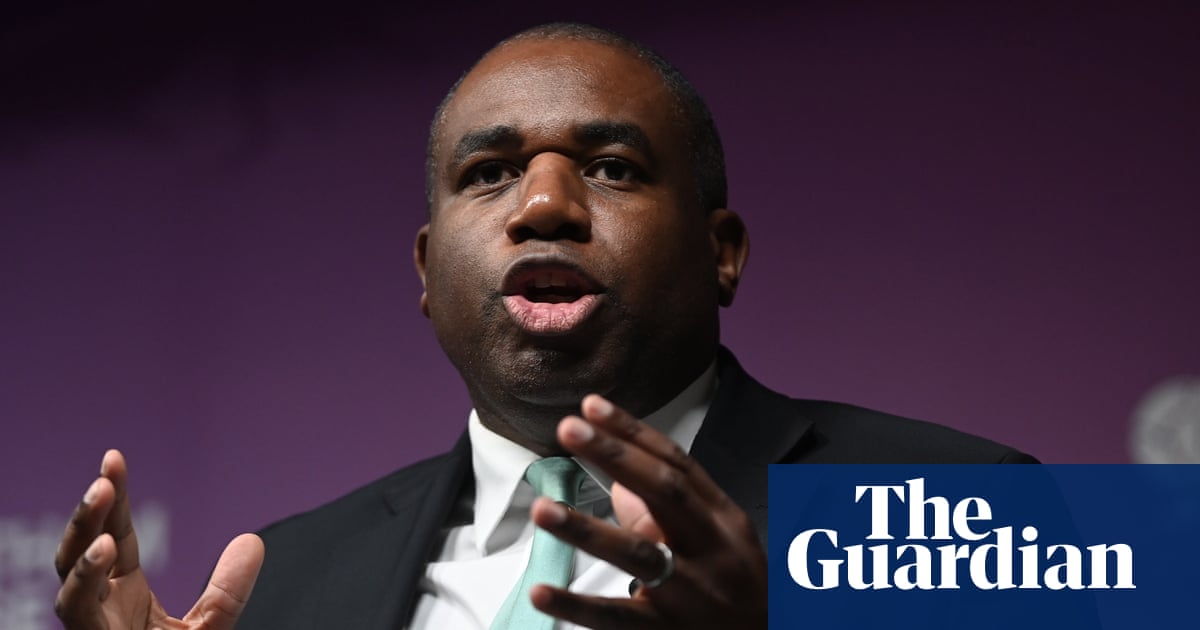
Rough sleeping will head back towards record levels unless Labour fills a looming £1bn shortfall in frontline funding when deals agreed by the last government expire in the coming months, dozens of homelessness charities have said.
Amid what campaigners have called “a wall of silence” from the government about how it will tackle fast-rising homelessness, 76 charity bosses this week told the chancellor, Rachel Reeves, any failure to extend existing funding risked “the most significant setback in progress towards ending homelessness and rough sleeping in recent history”.
Signatories said people would die if an adequate settlement is not reached and there was frustration that Labour had not put the issue higher up its agenda after pledging in its general election manifesto to “put Britain back on track to ending homelessness”.
Matt Downie, the chief executive of the charity Crisis, said there had been a 20% rise in people needing help in the last year, and described last month’s announcement by Keir Starmer to ensure all military veterans, young care leavers and victims of domestic abuse “will have a roof over their head” as “nowhere near the level of strategy and reform needed” to end homelessness.
The prime minister’s commitment did not, for example, cover people who sleep rough because of eviction, family breakdown, substance abuse or exploitation through sex work.
Downie said: “We need to see action as soon as possible. This isn’t just an accounting exercise. [Homelessness] is ruining people’s lives every day and night.”
Amid rising rents, food and bills, unmet health needs and continuing no-fault evictions, rough sleeping rose steeply last year. If it continues at the same rate it will be close to the highest level of recent times in 2017 when more than 4,700 people were counted on the streets on a single night.
Rough sleeping in London is also up 20% on last year, with prominent encampments on Park Lane in Mayfair and opposite the London Eye. Official data for England showed last week that the number of families living in temporary accommodation has risen by 12% to more than 117,000.
Charities affiliated as part of the Homeless Link group wrote to the chancellor and the housing secretary, Angela Rayner, on Tuesday “to raise the alarm regarding the perilous funding cliff-edge homelessness services across the country are currently facing.
“The inherent risks are severe, and they are already beginning to take effect,” they said, and listed dangers including:
All forms of homelessness increasing.
Severely disadvantaged people being evicted from supported accommodation and forced into rough sleeping.
Extra strain on emergency services.
Connection Support, a charity that uses £1.6m in government funds to help scores of rough sleepers in Buckinghamshire and Oxfordshire, often in rural areas, said more people could die without new funding commitments.
“It’s incredibly concerning for us,” said its chief executive, Chris Keating. “We’re concerned for what could happen to our clients if this funding is going to end. It will mean more people rough sleeping, more people in temporary accommodation, more people at risk of dying and deaths that could have been avoidable.”
Amanda Dubarry, the chief executive of Your Place, which runs one of the UK’s largest hostels in east London, said there had been “a wall of silence” from the government about its intentions. It receives about £500,000 a year in government funding and a decision not to renew it “will put dozens of people immediately back into homelessness and hundreds won’t get the help they need in the future … It would be disastrous on an individual level. Rough sleeping kills people.”
Rick Henderson, the chief executive at Homeless Link, said: “Organisations are already considering redundancies and scaling back services. The autumn budget is the government’s final opportunity to give the sector some certainty and prevent the inevitable surge in homelessness that will come if services are forced to close their doors from March.”
A spokesperson for the Ministry of Housing, Communities and Local Government said: “We have inherited homelessness levels which are far too high and this is having a devastating impact on people’s lives. We are taking action by setting up a dedicated interministerial group chaired by the deputy prime minister that brings together ministers from across government to develop a long-term strategy to get us back on track to end homelessness.”
They added: “Local authorities and their partners deliver vital work to tackle rough sleeping and funding allocations will be set out following the budget.”












